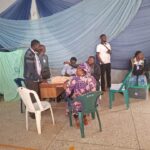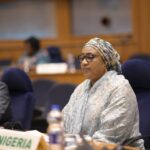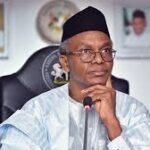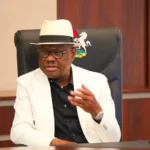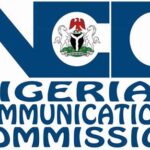By Folasade Akpan
The Nigerian Economic Summit Group (NESG) says health must be viewed as an investment and a catalyst for economic growth.
The group’s Chief Executive Officer (CEO) Designate, Mr Tayo Aduloju, said this in Abuja during a media conference.
According to Aduloju, evidence suggests that in developing countries such as Nigeria, every dollar invested in health yields an economic return of two dollars to four dollars.
He, however, said that Nigeria’s maternal mortality remains among the highest in the world, with over 50,000 women dying every year because of pregnancy-related complications and a maternal mortality ratio estimated between 500 and 1,047 deaths per 100,000 live births.
He added that the figure exceeds the global target of 70 deaths per 100,000 live births.
He added that “maternal mortality is widely accepted as an indicator of a country’s health system.
“This implies that in spite of commendable efforts by the government and donor agencies, we still need to build bridges that will advance health outcomes for all.”
The CEO designate also said that gender equity, trade and inclusive health policies and programmes are critical for sustainable development.
According to him, trade has the power to change people’s lives, communities and entire nations.
He added that health as the total state of one’s physical, mental and social well-being is a vital component of human development.
He said “a nation’s overall development, labour productivity and rate of economic growth are significantly influenced by trade and health.
“We see how rising healthcare costs, deteriorating infrastructure, lack of equipment and essential medicines and brain drain of
health workers limit physical and financial access to health services.
“Health as an investment for economic returns must be included in discussions about economic prosperity, particularly in developing economies like Nigeria.”
Aduloju also said that trade agreements and policies vary the impacts on health determinants.
He, however, said that to facilitate the advancement of a gender-inclusive society, it is necessary to consider how trade, investment and health policies/interventions affect women, men and vulnerable populations differently.
He said that in spite of their significant contributions to informal trade, women continue to have limited access to resources and markets.
He added that considering the stark realities, the Policy Innovation Centre (PIC), an initiative of NESG, organised a two-day event called Gender and Inclusion Summit 2023.
The Executive Director, PIC, Mrs Osasuyi Dirisu, explained that the summit would explore strategies to advance gender and inclusion.
She said “this is by harnessing the potential of trade to promote economic participation, reduce inequalities, improve access to opportunities, as well as innovative approaches to bridge healthcare financing gaps and access to quality healthcare services.”
She added that the PIC would provide an all-inclusive platform for dialogue with a wide range of stakeholders by amplifying the voices of the most vulnerable and co-creating innovative solutions to bridging inequality gaps in the country.
She announced that the summit, which has “Building Bridges: Advancing Gender and Inclusion through the Intersection of Trade and Health” as its theme,
will be held on Nov. 28 and Nov. 29 in Abuja. (NAN)(www. nannews.ng)
============
Edited by Modupe Adeloye/Hadiza Mohammed-Aliyu

